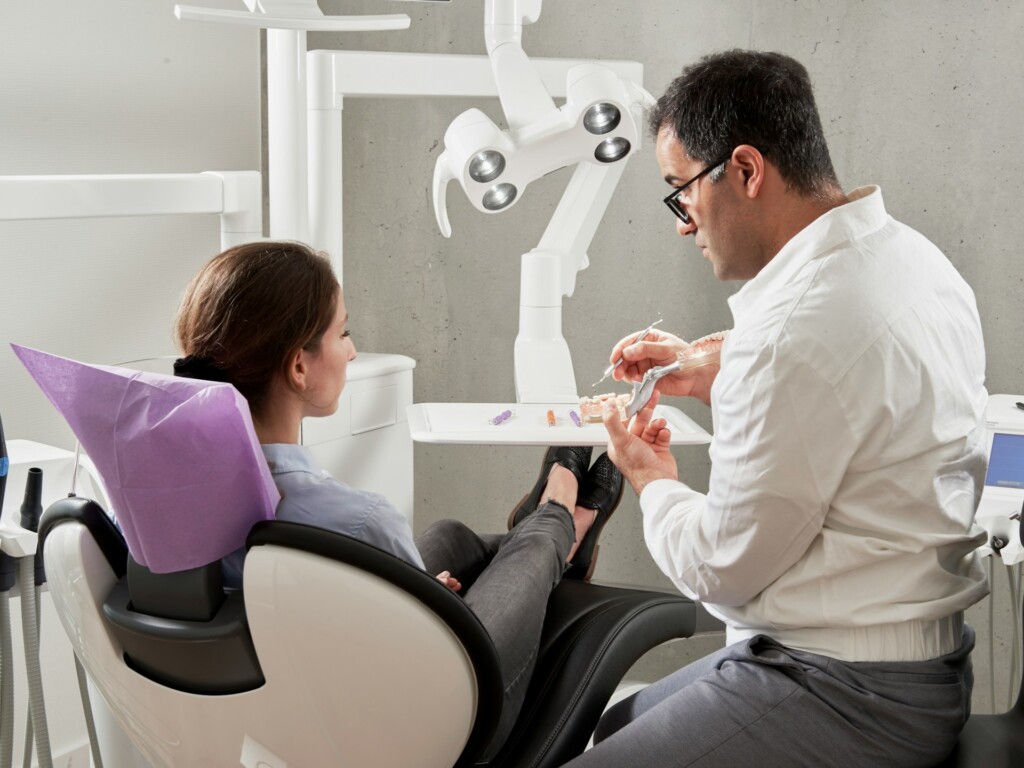When was the last time you visited your dentist? If you’re like many Americans, the answer might be “longer than I’d like to admit.” While brushing and flossing at home form the foundation of good oral hygiene, they’re only part of the equation. Professional dental examinations serve as your first line of defense against serious oral health problems that can impact your overall well-being.
Regular dental appointments aren’t just about keeping your teeth clean—they’re about catching problems before they become painful, expensive, and potentially dangerous. From cavity detection to oral cancer screening, these routine visits offer comprehensive protection that no amount of home care can replicate.
This guide explores the compelling reasons why consistent dental care should be a non-negotiable part of your health routine and how preventative dentistry can save you time, money, and discomfort in the long run.
The Foundation of Preventative Dentistry
Preventative dentistry focuses on maintaining optimal oral health through regular professional care and patient education. This approach emphasizes stopping dental problems before they start, rather than treating them after they’ve developed into serious conditions.
Professional dental teams use specialized tools and techniques that simply aren’t available for home use. High-powered suction devices, ultrasonic scalers, and professional-grade polishing equipment can remove tartar and plaque buildup that regular brushing and flossing miss. These tools reach areas of your mouth that are difficult to clean effectively at home, particularly along the gumline and between teeth.
Early Detection Saves Money and Pain
One of the most significant advantages of routine dental visits is early problem detection. Small cavities can be identified and treated with simple fillings before they progress to the point where root canals or extractions become necessary. A minor filling might cost a few hundred dollars, while a root canal and crown can easily exceed $2,000.
Similarly, gum disease caught in its early stages (gingivitis) can often be reversed with professional cleaning and improved home care. However, advanced periodontal disease may require expensive surgical interventions and ongoing maintenance therapy.
What Happens During a Professional Dental Cleaning
Understanding what occurs during your dental appointment can help you appreciate the value of these visits. Professional dental cleaning goes far beyond what you can achieve with your toothbrush at home.
Comprehensive Examination
Your dental hygienist begins with a thorough examination of your mouth, teeth, and gums. They look for signs of:
- Tooth decay in its earliest stages
- Gum inflammation or periodontal disease
- Oral cancer warning signs
- Bite problems that could lead to tooth wear
- Signs of teeth grinding or jaw clenching
Plaque and Tartar Removal
Even with excellent home care, plaque can harden into tartar (calculus) within 24-72 hours. Once tartar forms, it can only be removed with professional dental instruments. Your hygienist uses specialized tools to carefully remove these deposits from above and below the gumline.
Professional Polishing
After thorough cleaning, your teeth receive professional polishing that removes surface stains and creates a smooth surface that makes it harder for plaque to accumulate. This step leaves your teeth feeling noticeably cleaner and smoother than home brushing alone can achieve.
The Hidden Dangers of Skipping Dental Visits
Many people avoid dental appointments due to cost concerns, dental anxiety, or simply because they feel their teeth are fine. However, this approach can lead to significantly more serious problems down the road.
Oral Health Impacts Overall Health
Research has established clear connections between oral health and systemic health conditions. Poor oral health has been linked to:
- Heart disease and stroke
- Diabetes complications
- Respiratory infections
- Pregnancy complications
- Alzheimer’s disease
Bacteria from untreated gum disease can enter your bloodstream and contribute to inflammation throughout your body. Regular dental care helps prevent these bacteria from establishing a foothold in your mouth.
Silent Progression of Dental Problems
Dental problems often develop slowly and painlessly. By the time you notice symptoms like pain or sensitivity, the problem may have progressed significantly. For example:
Tooth decay can destroy significant portions of a tooth before causing noticeable pain. What could have been treated with a simple filling may now require a crown or even extraction.
Gum disease often progresses without obvious symptoms until it reaches advanced stages. You might not notice the gradual recession of your gums or loosening of teeth until permanent damage has occurred.
Oral cancer can develop with minimal early symptoms. Regular screenings during dental visits can catch these serious conditions when treatment is most effective.
Building a Relationship with Your Dental Team
Consistent care with the same dental practice allows your hygienist and dentist to establish baseline measurements and track changes over time. This continuity of care enables them to:
- Monitor subtle changes in your oral health
- Adjust treatment plans based on your specific needs
- Provide personalized advice for your home care routine
- Coordinate with other healthcare providers when necessary
Many patients find that developing a relationship with their dental team makes visits more comfortable and less stressful. As one patient noted, “I Love My Dentist and the entire team because they know my history and make me feel at ease during every visit.”
Overcoming Common Barriers to Regular Care
Financial Concerns
While dental care requires an investment, preventative visits are far more cost-effective than emergency treatments. Many dental insurance plans cover preventative care at 100%, recognizing its value in preventing expensive procedures later.
For those without insurance, many dental practices offer:
- Payment plans to spread costs over time
- Membership programs that provide discounts on services
- Package deals for routine care
Dental Anxiety
Modern dental practices understand that many patients experience anxiety about dental visits. They offer various comfort measures, including:
- Sedation options for nervous patients
- Headphones or entertainment during procedures
- Detailed explanations of what to expect
- Gentle techniques to minimize discomfort
Time Constraints
Routine dental visits typically take 45-60 minutes and are needed only twice per year. Many practices offer:
- Extended hours including evenings and weekends
- Online scheduling for convenience
- Reminder systems to help you stay on track
Your Path to Optimal Oral Health
Regular dental check-ups represent one of the most important investments you can make in your long-term health and quality of life. The combination of professional cleaning, early problem detection, and personalized guidance creates a comprehensive approach to maintaining your smile for years to come.
Don’t wait until problems develop to seek professional care. Contact your dental office today to schedule your next appointment and take the first step toward optimal oral health. Your future self will thank you for making this important commitment to your well-being.






